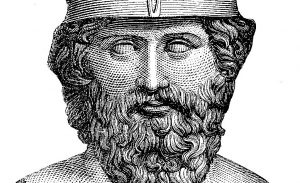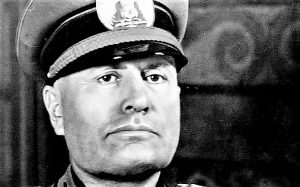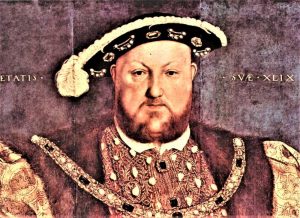Themistocles
Themistocles was a statesman and an Athenian state general whose emphasis on naval power and different military skills were fundamental during the Persian wars, a victory in which Greece was assured of surviving its greatest threat. He was a man who exhibited the most brilliant signs of genius when it came to battle. It is for this reason that he is considered to be a brilliant strategist and an extremely astute politician, who was probably too thirsty for glory and power. He was undoubtedly one of the most important and colorful figures that existed in the era of classical Athens.

Personal Information
- Birth date: 524 B.C.
- Birthplace: Anavyssos, Ancient Greece
- When he died: 459 B.C.
- Where he died: Magnesia of the Meander, Ancient Greece
Who was Themistocles?
Themistocles was a military leader and an important politician from Athens, who lived in the time of the Medical Wars against the Persian Empire saving the Greek world and thus, preventing Leonidas' sacrifice from being in vain.
Biography of Themistocles
Themistocles was born in 524 B.C. in the city of Athens. He was a son of immigrants, but in spite of that, he achieved an important political and military career in the city. In Athenian Democracy, which was basically a new democracy, he found a way to improve the populist side, which supported the people before the people in power and from where he ended up being their leader maintaining the nobility on their side. When he turned 30, he was elected eponymous Archon, a position that meant being the greatest magistrate in Athens. While he exercised his mandate, Piraeus began to build the port and the creation of a fleet, because he thought that was the way Athens would conquer the maritime domain.
Death
According to historians, Themistocles fled to Pidna, where he embarked for Asia Minor, but the ship in which he was traveling changed course for a storm reaching Naxos, where he was besieged by an Athenian fleet. Trying not to be identified, Themistocles convinced the captain of the ship to continue his journey. At that time there was a reward for Themistocles’ head and for this reason, they designed a plan to be able to pass him before the king, to whom he made promises in order to live in the place. Many historians comment that when he could not fulfill these promises he committed suicide with a quick and effective poison. He died in Magnesia when he turned sixty-seven. His bones were taken to Attica as he had requested before he died and were secretly buried in his hometown.
What he did?
When he realized that Leonidas had bound in the Thermopylae, he left his Artemisian position to begin his mission, which was to delay the Persian advance and proceeded to Athens to give the order to evacuate the city. What he did was to attack surprisingly Xerxes and his army when they entered the Strait of Salamis. In this way he became the hero of Athens by defeating the Persians.
Battles and wars
Themistocles was part of important battles. First, he was part of the battle of Marathon, in 490 B.C., against Persia, a battle in which he became an important promoter of the naval power of Athens and was very close to the different merchants of the city. At the end of the First Medical War, he also participated in different naval operations, although it was during the later Persian invasion, in the Second Medical War, when his political and military ability came to light.
The Athenian general managed to defeat the Persians in the Battle of Salamina, probably the most important of their battles, which took place in 480 BC. In this battle, he made Athens the hegemonic power of Greece by building an immense fleet. However, despite his excellent role he was accused of treason and ended up in the service of Persia. The great naval battle of Salamis had an important significance, the decisive defeat of the immense Persian army with which Xerxes had invaded Greece. This battle marked the beginning of the hegemony that the democratic Athens exercised in the Aegean for the following decades.
Themistocles and Artemis
Artemis was the tyrant of Halicarnassus, was a queen who led the troops of King Xerxes during the Second Medical War and also participated in the battle of Salamis. She was the most important advisor to Xerxes, but in spite of this, she did not listen to his advice and decided to attack the Greeks. Themistocles had deceived Xerxes with a false message and Artemisia failed to convince the king otherwise, so the battle was carried out, Themistocles triumphing.
Physical characteristics
At present, there is no exact description regarding the physical characteristics of Themistocles, although it is known that he was a strong and good-looking man.
Personality
With regard to his personality it is known that he was an extremely ambitious and greedy man. His ambition was greater than any other man in the place, he was also very vain and full of pride, so much so that he recognized himself for his different achievements. According to historians, he also had a marked personal nature that focused on seeking the best for Athens, although he was interested and to some extent corrupt. However, he was a talented, intelligent, cunning and very brilliant man, one of the best leaders in years.
Themistocles phrases
Among his most recognized phrases we mention the following:
- Whoever dominates the sea dominates everything.
- Hit, but listen.
- I choose the probable man instead of the rich man; I want a man without money instead of money without a man.
- For the Athenians, they command the rest of Greece, I command the Athenians; Your mother commands me, and you command your mother.
- I never learned to tune a harp or to play a lute; but I know how to build a small and insignificant city for glory and greatness.
How to cite this article?
Briceño V., Gabriela. (2019). Themistocles. Recovered on 23 February, 2024, de Euston96: https://www.euston96.com/en/themistocles/









